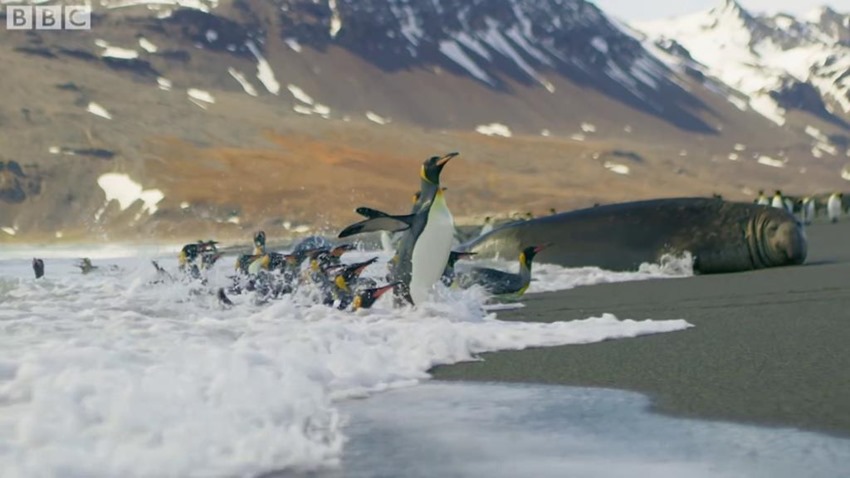
Let’s be honest: Nature documentaries used to be kind of boring. A couple of years ago, things began to change when the technology for capturing wildlife began to evolve in leaps and bounds. No longer were we gazing at the great savannah’s of Africa through a grimy lens from a cameraman who had spent weeks perched in a single spot, we were being exposed to gloriously colourful vistas and footage never seen before.
We got to see animals behave in a manner that was downright alien to our preconceived notions, we got new viewpoints filmed by daredevil researchers and we discovered a fascinating new scientific insight into the world around us. Documentaries such as the BBC’s Planet Earth have done wonders for nature, reigniting the passion to observe and conserve our precious ecosystems.
One of the biggest changes to how the field of filmmaking is evolving within the nature documentary genre? The usage of drones, which is opening up the possibility for capturing new footage more than ever before. I recently chatted to senior innovation producer and zoologist Colin Jackson about his work on BBC’s Seven Worlds One Planet documentary series and how the use of drones has left a mark on the genre. Here’s what he had to say:
What kind of drone do you use for nature documentary filmmaking? I’d imagine that you have special custom units that you pilot out in the field.
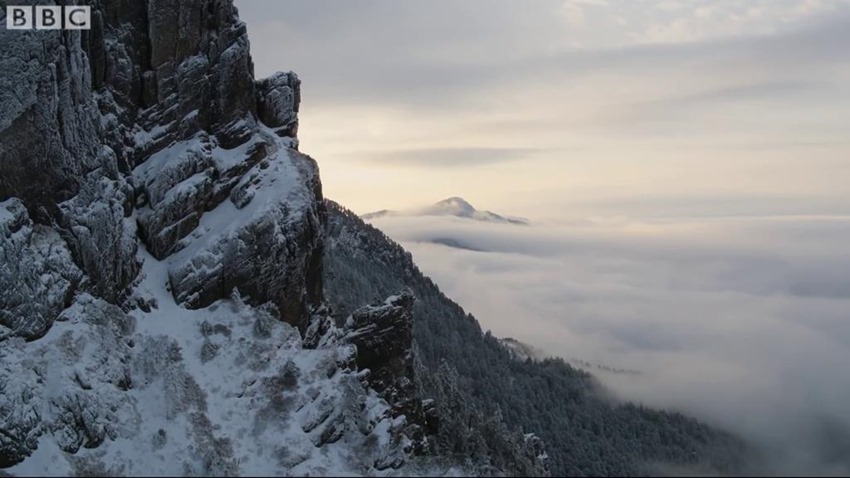
It’s interesting. Natural history relies on time in the field and it requires our teams to be incredibly multi-skilled. When a new technology like drones comes along, for practical reasons you can’t just take somebody extra out into the field and stay there for weeks at a time just doing a little bit of a skill. The larger drones that started out life where you were carrying heavy duty cameras underneath them. They were impractical for us for natural history filming.
It’s recently since the advent of smaller drones with sufficiently high quality cameras that we’ve seen an explosion in the use of them. Because our teams can be multi-skilled they allow us to do things with them that we’ve never done before.
What kind of footage can you record with drones, that traditional filmmaking is incapable of producing?
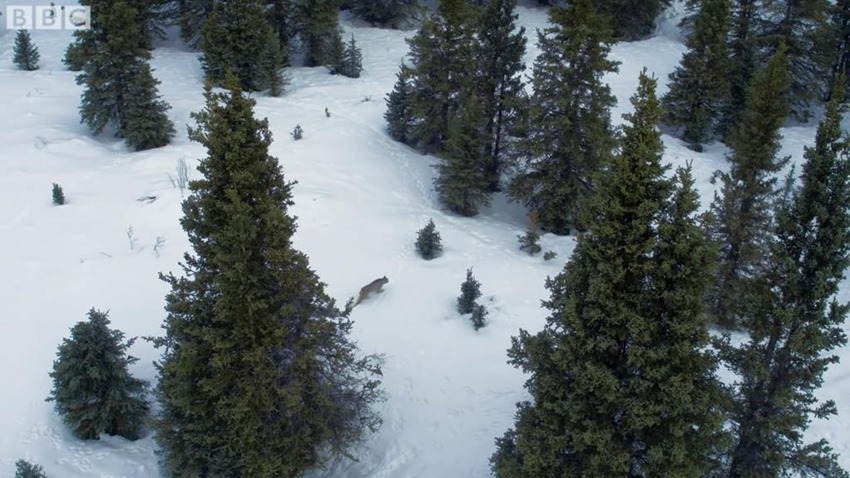
The obvious one is this sort of aerial perspective. This sort of godlike view you can get from above, which without having a helicopter and a very long lens you would never have been able to do. And that adds into the editorial, because you can start to see things that in a wider space that you wouldn’t be able to do, to tell parts of the story that might need that. And it has become sort of part of it. People have become used to seeing the world from top-down, like satellite imagery through Google maps.
That idea of being able to see the world from top-down has become almost second-nature to most users around the world. To capture that from a documentary perspective, has only really become possible when you have drones like this because how else do you get up in the air?
Drones are naturally loud. How do you balance their noise with capturing footage of animals during more intimate and natural moments?
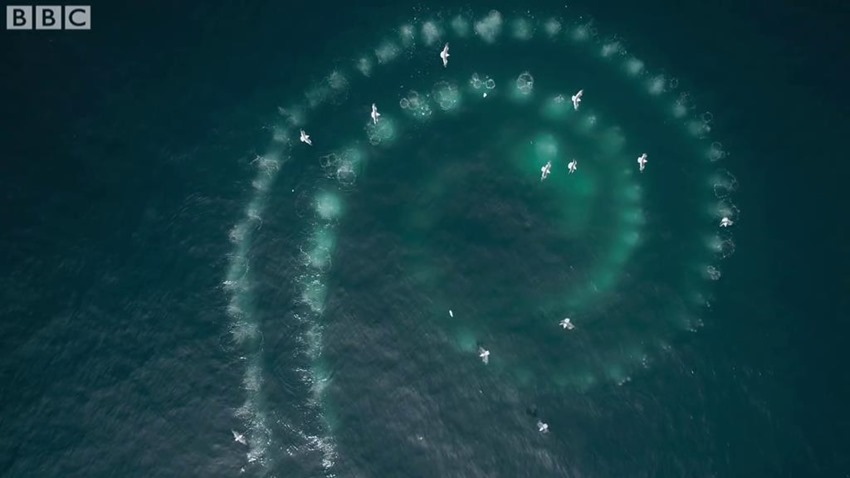
Obviously we take great care over our animal subjects. We are a department of animal lovers essentially. We’re working with a huge range of people out there and all of that is to make certain that anything we do does not adversely impact on the wildlife out there. It’s not an exact science, but in some parts of the world an animal species may be used to vehicle approaches, the noise of a vehicle.
A drone is actually quieter than that. We work with an approach where we work with a scientist, we start at a distance and then we’ll try and work closer but if notice any adverse effects on the wildlife we’ll definitely remove ourselves from the situation because that’s definitely not something that we want to have happen. Having said all that, what is very interesting to notice from all the stuff that we have been filming is that animals seem to be not that interested in the drones that are around and operated safely.
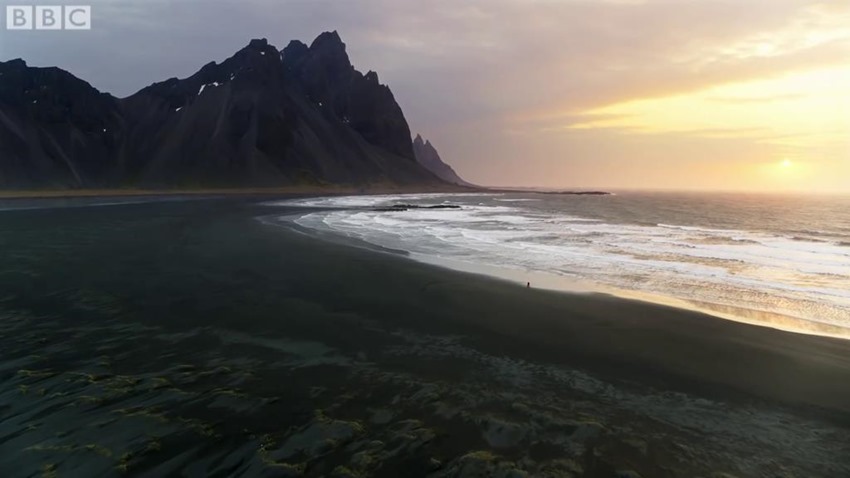
We’re able to use cameras that are on drones with longer lenses that you’re used to, so we have them further away than you think. You can be a long way away but with a lens that’s a 90mm equivalent and do reasonably close shots. The shots that you want from drones, tend to give you a wider perspective of the animal and the environment that it’s in, so in the case of marine mammals you’re trying to be above them and see what’s going on under the waves from a vantage point of 20-30 meters up.
At that point, the noise made by drones is unnoticeable by marine mammals who spend their lives beneath the surface of the sea.
What has drone technology allowed you to learn about animals, that you’d never discovered before with a regular camera setup?
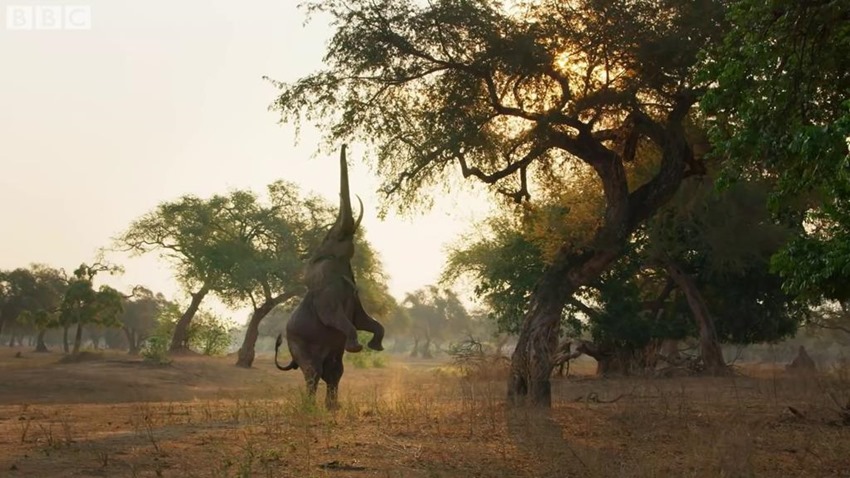
We’re constantly learning new things and understanding how animals move. That’s one of the things that drones do, it gives you a perspective on how animals move in that 3D space. When you’re watching what goes on from the ground level, you get a whole new perspective from above. You can start to tease out bits of new behaviour from that.
One of the highlights for me was seeing a sequence from Blue Planet 2 which has sea lions hunting tuna off the Galapagos. Now this was a bit of behaviour that was being witnessed by local fishermen , they were convinced that sea lions were actively herding tuna from out of the open ocean and into a blind gully in order to hunt them. If we’d have shot that just on the ground, it would have been a very different sequence.
We had a drone that allowed us to see the techniques that the sea lions were using to try and round up the tuna. I don’t doubt for a second that we’ll find more and more of these things as we continue to use drones.
Seven Worlds, One Planet – presented by Sir David Attenborough – will premiere on BBC Earth from 29 March at 4pm, DSTV Channel 184.
Last Updated: March 24, 2020




















